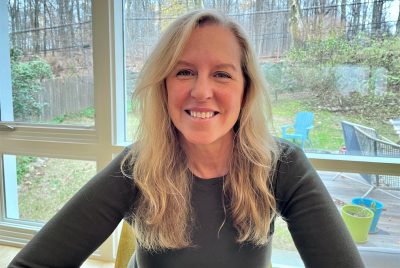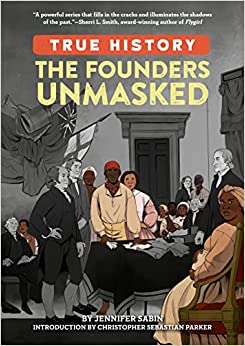Pleasantville Author Creates “True History” Series for Young Readers
News Based on facts, either observed and verified directly by the reporter, or reported and verified from knowledgeable sources.
By Jessica Jafet
If history is indeed dynamic and our interpretations of past events continue to evolve, then it is essential to investigate issues that have often been left out of traditional school curriculums — in order to illuminate long-overlooked truths and tell a fuller account of our collective story. 
Such was the logic and motivation for Pleasantville resident Jennifer Sabin, an author and former broadcast journalist, who became determined to create a series of non-fiction books that provide thorough accounts of history with additional factual context so that young readers could be thoughtfully introduced to a more nuanced picture of how our nation came to be.
“Some of these truths can be difficult to grapple with, but that doesn’t mean they should be ignored or downplayed,” Sabin said, adding that confronting these subjects “would help empower [students] to be the next generation of change-makers.”
During the pandemic, when her young adult children were at home, Sabin’s family had many discussions about events that were happening, including the Black Lives Matter marches as well as a documentary that they watched together called, “13th.” The film explores the legacy of the 13th Amendment to the United States Constitution (which abolished slavery “except as a punishment for a crime whereof the party shall have been duly convicted”) and the history of racial inequality and mass incarceration in the United States as long-lasting repercussions.
“My daughter went to an excellent high school and college and just didn’t know so much of this — it made me realize that there is a lot of history that is not taught in this country,” Sabin said.
She pitched the chapter book idea to Penguin Workshop, an imprint of Penguin Young Readers, which blossomed into a series called “True History.” The publisher has already launched four titles for middle-grade readers, including The Founders Unmasked, written by Sabin, The Legacy of Jim Crow by Clarence A. Haynes, A New History of Immigration, by Jaclyn Backhaus and Indigenous America, by Liam McDonald. 
Each book attempts to uncover hidden histories by presenting material in straightforward language that is accompanied by short glossaries, profiles, timelines and color inserts—in a way Sabin hopes will spark conversations and expose events from a multitude of perspectives, “giving students information and tools to ask their own questions.”
As a news writer and editor for almost two decades at ABC News, and then having earned a graduate degree in creative writing, the author understands the power of words and stories to shape ideas.
In “The Founders Unmasked,” the title itself was worded in a more inclusive way (omitting “Fathers”), Sabin explained, in reference to the architects who created the United States government, and who codified its principles. The author describes the reality of who these men were—their amazing accomplishments and goals they set for the country, along with practices that often contradicted the core beliefs they professed to hold.
Without naming the founders as heroes or villains, the book attempts to present the full range of their characters and personal lives, as well as to highlight the stories of other people who played a role at the time, instead of mentioning them merely as footnotes to the men.
For example, Thomas Jefferson, a revered founder and third president of the United States who penned the words “all men are created equal” in the Declaration of Independence, is presented with the complicated legacy he left, as an owner of enslaved people. A chapter is devoted to Sally Hemings, a woman who was enslaved by Jefferson and bore at least six children fathered by him.
Through “interviews and documentation, perspective and context,” the creator said the new book series aims to “point out some of the half-truths and lies we are taught as children and to present history through a more critical lens,” a deeper-dive exercise that she believes is important.
“I feel really strongly that young people especially, can take in all of this information and still love their country and still feel very connected to it; but they should know the truth about it,” Sabin said. “The bottom line is that it is all part of American history and sometimes it is really messy and complicated — all I am interested in is educating young people so that they understand the full scope as much as possible. History needs to keep being updated.”

Examiner Media – Keeping you informed with professionally-reported local news, features, and sports coverage.
